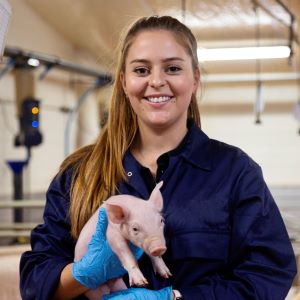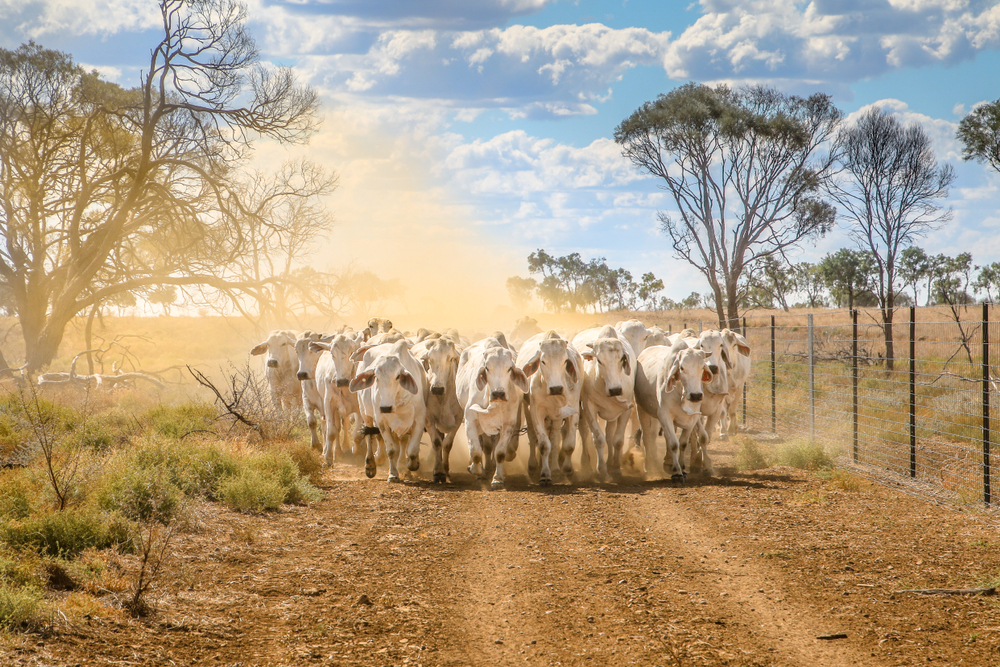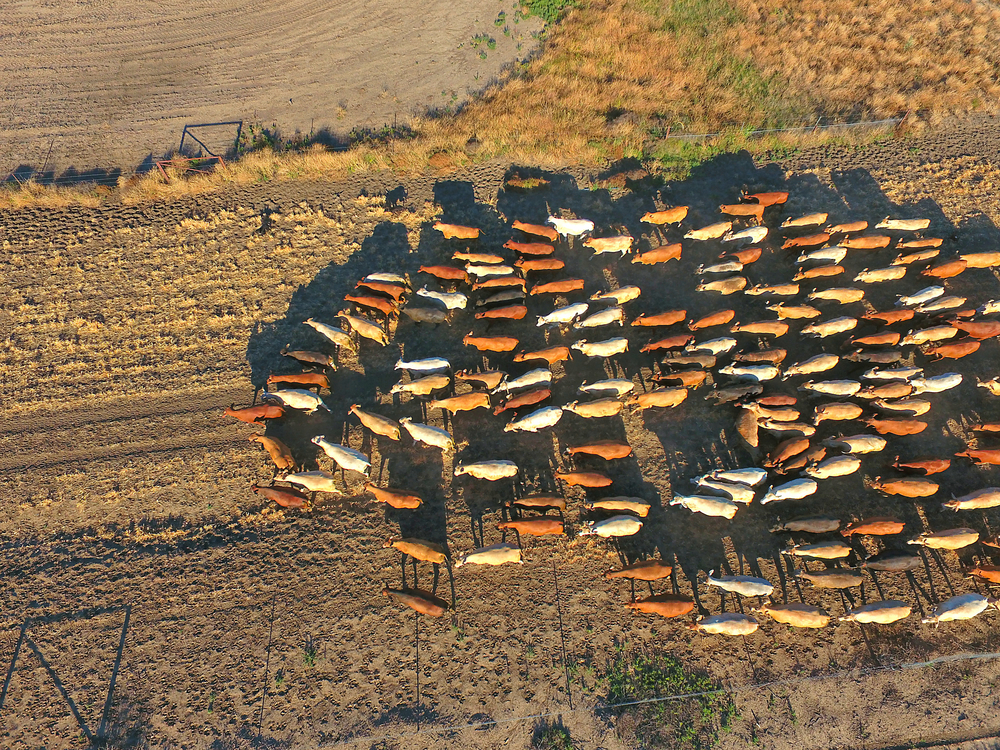Veterinary Epidemiology and Public Health
this course has many of the same optional modules
We understand the difficulties many people face with full-time study and offer studies by distance learning
The programme provides animal health specialists, scientists and public health specialists with a conceptual understanding and our graduates find the the international recognition and prestige of their degree opens doors and creates opportunities in their careers.

Programme aims
-
An understanding of the role of veterinary epidemiology and economics in the design and delivery of effective livestock services.
-
Knowledge of risk analysis approaches in food safety and how human health can be protected through control of zoonotic diseases.
-
Skills in basic and advanced statistical methods in order to undertake epidemiological investigations and disease modelling.
Flexible study options
- Students are working professionals and the pace of study is flexible.
- Although non-compulsory, Indicative Study Calendars provide an indication of the time to spend on each section.
- Examinations are scheduled in October, however, flexibility allows exams to be deferred, if necessary.
- A five-year period is offered for the MSc degree, with an average completion time of three years.
240-hour individual module (credit bearing)
Degree modules can also be studied as standalone modules for Continuing Professional Development. This allows the opportunity to sample a discrete learning unit before committing to the degree programme. (See the Individual Module page for further information). On successful completion, you may progress to the MSc degree, Pg Diploma or Pg Certificate, using the module as a credit. (Note: A maximum number of modules may be used for progression).
50 and 35-hour individual modules (non-credit bearing)
Enables you to sample a small element of the longer, 240-hour, individual modules. No application or registration deadline.
Final Award
Graduates will receive two documents: a diploma 'parchment' and a diploma supplement. The diploma will show the award of a University of London Degree, with the Royal Veterinary College as the Lead College involved. The diploma supplement will describe the nature, level and content of the studies. Studies are placed at Level 7 of the Framework for Higher Education Qualifications.
Graduates are invited to attend the Graduation Ceremonies of both the University of London and the Royal Veterinary College.
RVC INSIDERS

As a graduate student pursuing a distance learning program, I found the study method to be highly flexible and convenient. It allowed me to balance my personal and work life effectively. In a typical week, I managed my time by creating a structured schedule. I allocated specific time slots for studying, which included dedicated periods for watching lectures, conducting research, completing assignments, and participating in online discussions.
— Ayman Abdelkader, MSc Veterinary Epidemiology and Public Health (Graduated 2022), Abu Dhabi

I found distance learning difficult in some aspects, mainly not being able to interact with other students in person. However, distance learning allowed me to complete my degree alongside my full-time job, therefore allowing me to keep gaining valuable industry experience whilst studying. The online portal did allow discussion with other students and the course coordinator was very helpful at putting you in contact with other students via email.
— Christina Gale, MSc in Livestock Health and Production (Graduated 2022), UK
 Veterinary Nursing at the RVC
Veterinary Nursing at the RVC
Find out more about what veterinary nursing at the RVC can offer you, your career and your team. Veterinary Nursing at the RVC
Academic qualifications
MSc degree
EITHER a second class honours degree (or equivalent) in a scientific subject, veterinary science, animal science, agriculture, biological sciences or medicine;
OR a second class honours degree (or equivalent) in a scientific discipline which has, in the opinion of the University, included suitable training.
Postgraduate Diploma, Postgraduate Certificate and 240-hour individual modules
A degree or a technical or professional qualification and work experience considered appropriate and relevant by the University.
50-hour and 35-hour individual modules
There are no entrance or English language requirements (non-credit bearing individual modules)

English language requirement
With the exception of students taking 35-hour or 50-hour individual modules, all applicants must provide evidence of their English language ability.
Applicants whose first language is not English must provide documentary evidence acceptable to the University that the applicant has, no more than three years prior to the application, either been educated in English (minimum 18 months).
OR worked in English (minimum 18 months);
OR passed a test of English Proficiency acceptable to the University of London within the past three years – for example IELTS (Academic) with an overall score of 6.5 with a minimum of 6.0 in each sub-test.
OR TOEFL iBT (internet-based Test) with an overall score of 92 or above, with at least 22 in both Reading and Writing Skills sub-tests and at least 20 in both Speaking and Listening sub-tests.
The University reserves the right to require an applicant to pass, at an appropriate level, a test of proficiency in English that is acceptable to the University before an offer of registration can be made
Computer specification
Please note some of the modules have computer or software requirements and you are advised to read the module outline prior to registering.
How you study
If your job requires frequent travel, or you work irregular hours, distance learning offers a way of furthering your studies without having to attend the RVC in person. You also avoid additional travel, accommodation and living expenses of being a student in London.
How we support you
Although you are provided with the materials you need to successfully complete your study with a minimum of direct academic support, you do receive support in several ways:
- Access to 'Ask an Academic' providing the opportunity for discussion with both an RVC academic and module cohort;
- Participate in occasional, scheduled, online activities, such as forums and 'live' teaching;
- Connect and communicate with other students on the programme via Student Discussion Forums. Work with study buddies and arrange group study time;
- Access to the RVC community and online library.
Study materials
Access to the below are provided via our Virtual Learning Environment:
- Programme Handbook and Student Guide containing advice on planning your studies, preparing for examinations and study techniques;
- Teaching material, containing directed learning notes, a series of readings (book chapters and articles) and online textbooks.
Period of study
For the MSc, students are offered up to 5 years, Pg Diploma students are offered between 2 to 4 years and for the Pg Certificate, students are offered between 1 and 2 years to complete the programme. The ‘study year’ is effectively between February and September, with online examinations in early/mid-October.
Time commitment
Individuals differ in the number of hours per week they need to devote to study and in the number of years in which they require to complete the programme. As a rough guide, we estimate that each module of the degree programme will take between 240-300 hours to complete (includes study units and compulsory written assignment). Additional time would be required for revision.
Assessment
Each module is examined by a 4-hour, unseen written examination, which may contain essays and shorter questions. You must also submit 1-compulsory written assignment for each course. The two elements are weighted: unseen written examination (80%), compulsory written assignment (20%).
Examinations
Online exams are scheduled annually in October.
Modules
- Whichever option you choose to take, a combination of both core and optional modules must be studied.
- The core modules provide an essential introduction to a variety of approaches, methods and subjects. These modules are designed to equip you with the preliminary practical and intellectual skills necessary for progression to the next level. There is a natural progression of content from the core to the optional modules.
- Within the optional modules, there is an element of choice in subject matter and disciplinary areas of study. Although the optional modules may not in themselves be more difficult, you will develop a greater understanding and a sophistication of thinking as you work through the modules.
3-compulsory core modules:
- Epidemiology and Animal Health Economics (LVM004)
- Statistical Methods in Veterinary Epidemiology (VPM012)
- Veterinary Public Health (LVM006)
PLUS 4-further optional modules selected from:
- Advanced Statistical Methods in Veterinary Epidemiology (VPM013)
- Management of Infectious Disease Outbreaks in Animal Populations (LVM017)
- Research Design and Methods (LVM014)
- Research Project in Veterinary Epidemiology and Public Health (applicable to the MSc only) (LVM200)
- Surveillance and Investigation of Animal Health (VPM015)
Structure
|
Veterinary Epidemiology And Public Health |
||
|
MSc (7 modules) 2-5 years part-time |
Pg Diploma (4 modules) 2-4 years part-time |
Pg Certificate (2 modules) 1-2 years part-time |
|
Three compulsory core modules:
|
Two compulsory core modules:
|
Two compulsory core modules:
|
|
PLUS four optional modules chosen from:
|
Plus two optional modules, chosen from:
|
|
Our graduates find that the international recognition and prestige of their degree opens doors and creates opportunities in their careers.
Graduates of the programme are employed in a variety of organisations including the Department for Environment, Food and Rural Affairs (Defra), university veterinary faculties and international organisations including the Food and Agriculture Organization of the United Nations (FAO) and World Health Organization (WHO).
Please refer to the Programme Specification for 'Educational Aims and Learning Outcomes' and 'After Graduation'.
Alumni Inspiration

I teach animal welfare and animal health, and I'm applying everything I learned in my degree straightaway in my job. The programme is really complete and helpful - I learned a lot and I would recommend it without hesitation.
— Alizée Debleuvre, Livestock and Health and Production, France (December 2021)

I enjoyed the international perspective, particularly with regards to the UK FMD outbreaks and the examples used in the economics units. The livestock industry structures and price drivers are different to the extensive production systems we have here in Australia.
— Kristine Rayner, MSc Veterinary Epidemiology and Public Health, Australia (December 2022)
The University of London International Programmes are immensely proud that each year thousands of distance learning students graduate around the world. It is interesting to note, that Nelson Mandela (Nobel Peace Prize Winner) and Her Excellency Luisa Diogo (Former Prime Minister of Mozambique) have also studied by distance learning.
The Programme Fees below refer to the 2024 session only and are effective from 1 March 2023:

Fees are subject to annual review and may be paid in one of two ways:
Option 1
On registration, a single payment covering the registration fee and all module fees:
| Total MSc degree | £17,328 |
| Total Postgraduate Diploma | £10,392 |
| Total Postgraduate Certificate | £5,407 |
The total fee incorporates a discount for payment in advance.
Option 2
Pay the registration fee, plus the fee for each module you take in your first year. Then, in subsequent years, you pay the fee for each new module you take.
| MSc registration fee | £2,281 |
| Postgraduate Diploma registration fee | £1,720 |
| Postgraduate Certificate registration fee | £1,130 |
| Fee per module | £2,281 |
College staff / alumni discount
Royal Veterinary College staff members and alumni will receive a bursary of 20% off fees for these distance-learning programmes (excluding resit fees). Please contact the Course Administrator for further information.
Tuition fee amounts are subject to increase each academic year, please be aware of this when making your calculations and planning how much money you will require.
For more information on help with funding, please visit https://www.london.ac.uk/applications/funding-your-study.
Sorry there are no items that match your filters.
